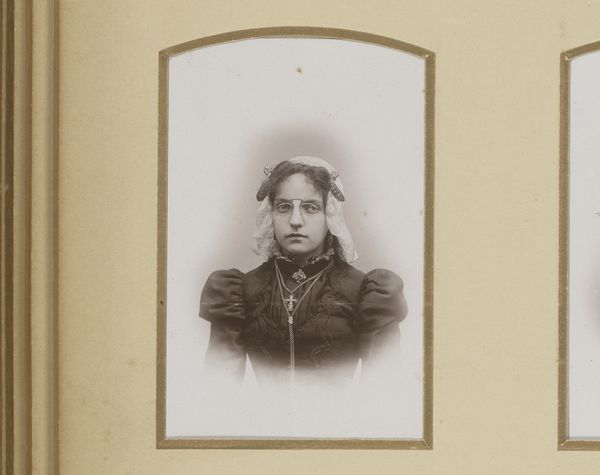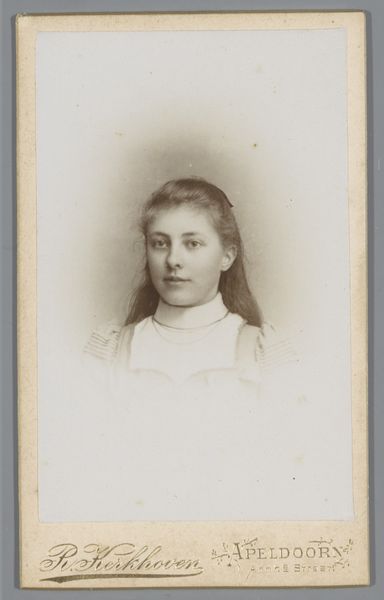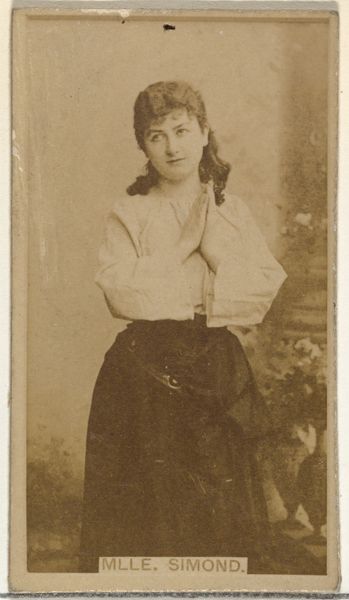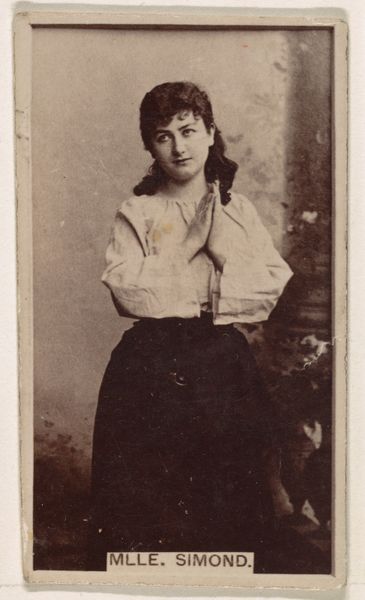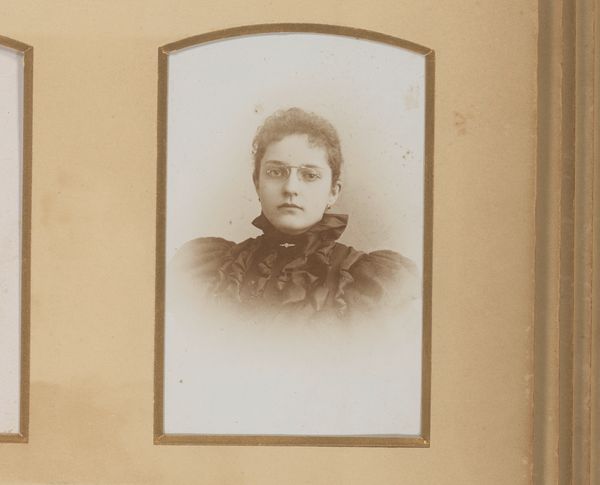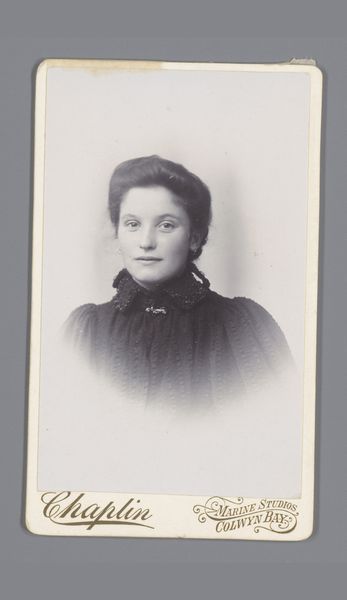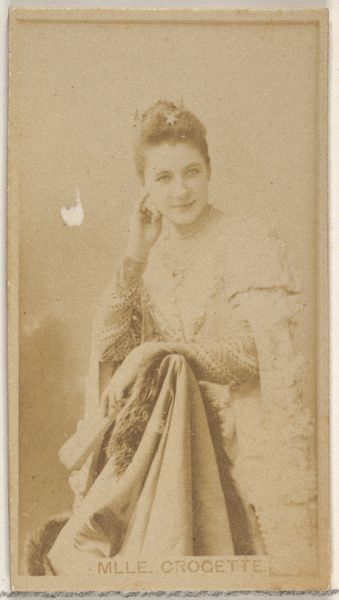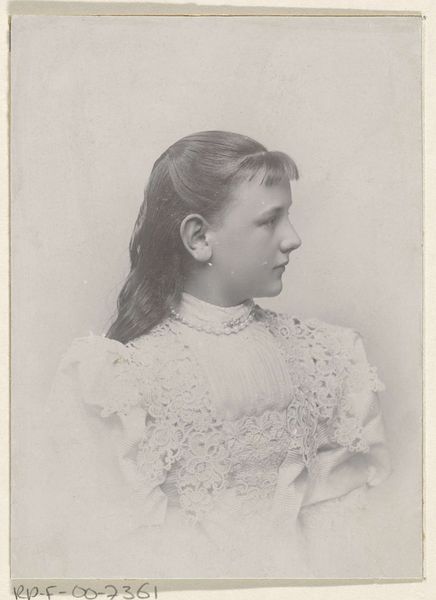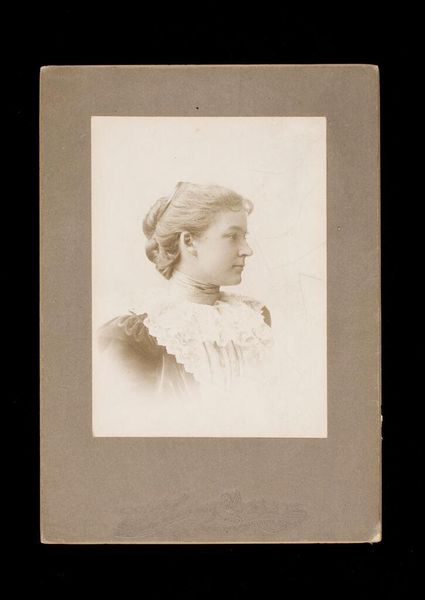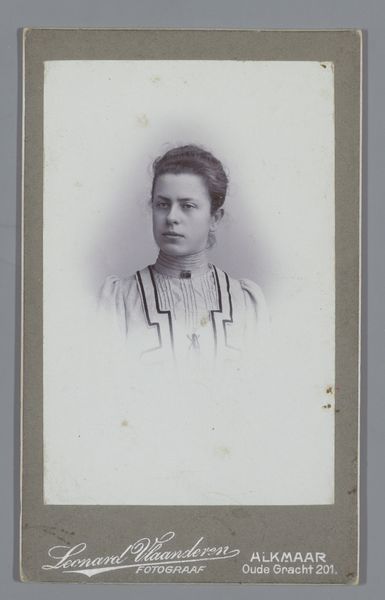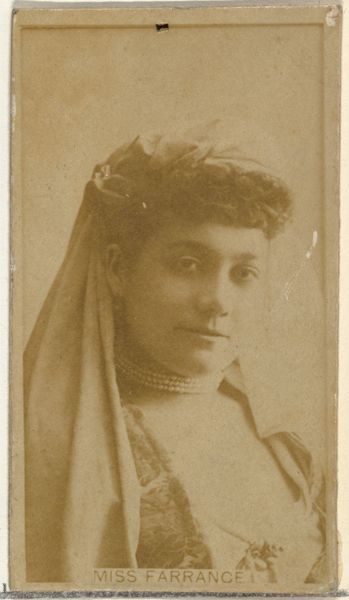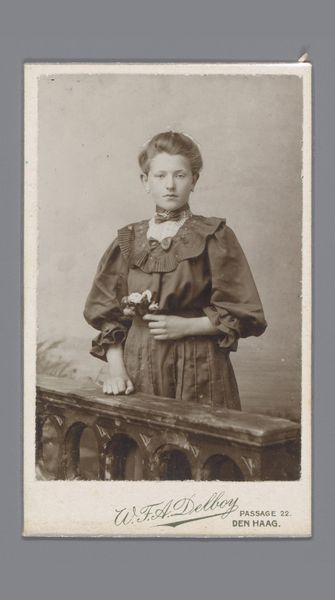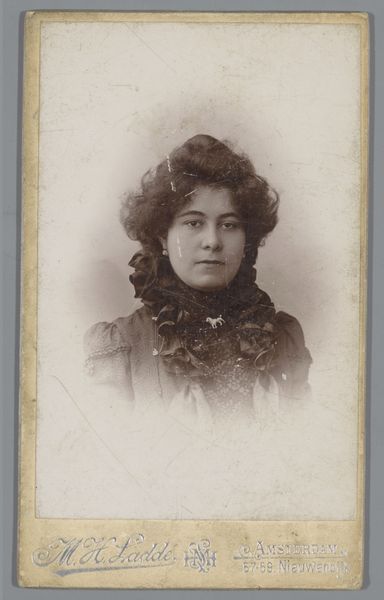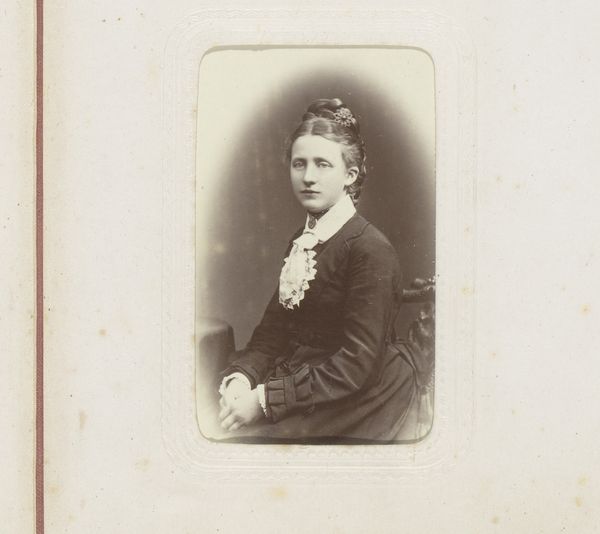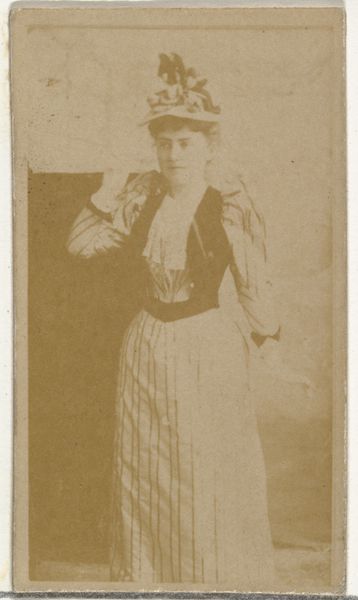
photography, gelatin-silver-print
#
portrait
#
photography
#
historical photography
#
group-portraits
#
gelatin-silver-print
#
19th century
#
genre-painting
Dimensions: height 89 mm, width 59 mm, height 104 mm, width 64 mm
Copyright: Rijks Museum: Open Domain
Editor: Here we have "Portret van twee meisjes met lang haar, één met een kanten halsdoek", a gelatin-silver print from before 1919, by Gerhard Pitz. The two figures feel very central in the frame and balanced, given the lack of color. What stands out to you the most? Curator: Certainly the interplay of textures is of primary interest. Observe how the smooth tonality of the girls' faces contrasts sharply with the intricate detailing of the lace collar. This juxtaposition creates a visual hierarchy, guiding the eye and establishing the collar as a focal point within the composition. Notice how that element's horizontal directionality works in harmony with the verticality of the portrait's structure. Editor: So, you are primarily looking at the visual elements and their arrangements, rather than focusing on what the photo means? Curator: Precisely. Meaning is secondary to the structural integrity of the artwork itself. How the artist manipulates form, texture, and light to create a self-contained visual experience is key. Editor: That makes sense. I didn't really consider the way the textures play off each other before. Curator: Consider further the function of the sepia tone, beyond simple aging. It unifies the image tonally, allowing these textural contrasts to be more immediately perceptible. A colder or more contrasted treatment might obscure such relationships. Editor: It’s a completely different lens from what I’m used to, but I appreciate seeing how visual elements take precedence here. Curator: Indeed. There’s value to seeing how different layers can shift our interpretation. The pure aesthetics are definitely evident now.
Comments
No comments
Be the first to comment and join the conversation on the ultimate creative platform.
